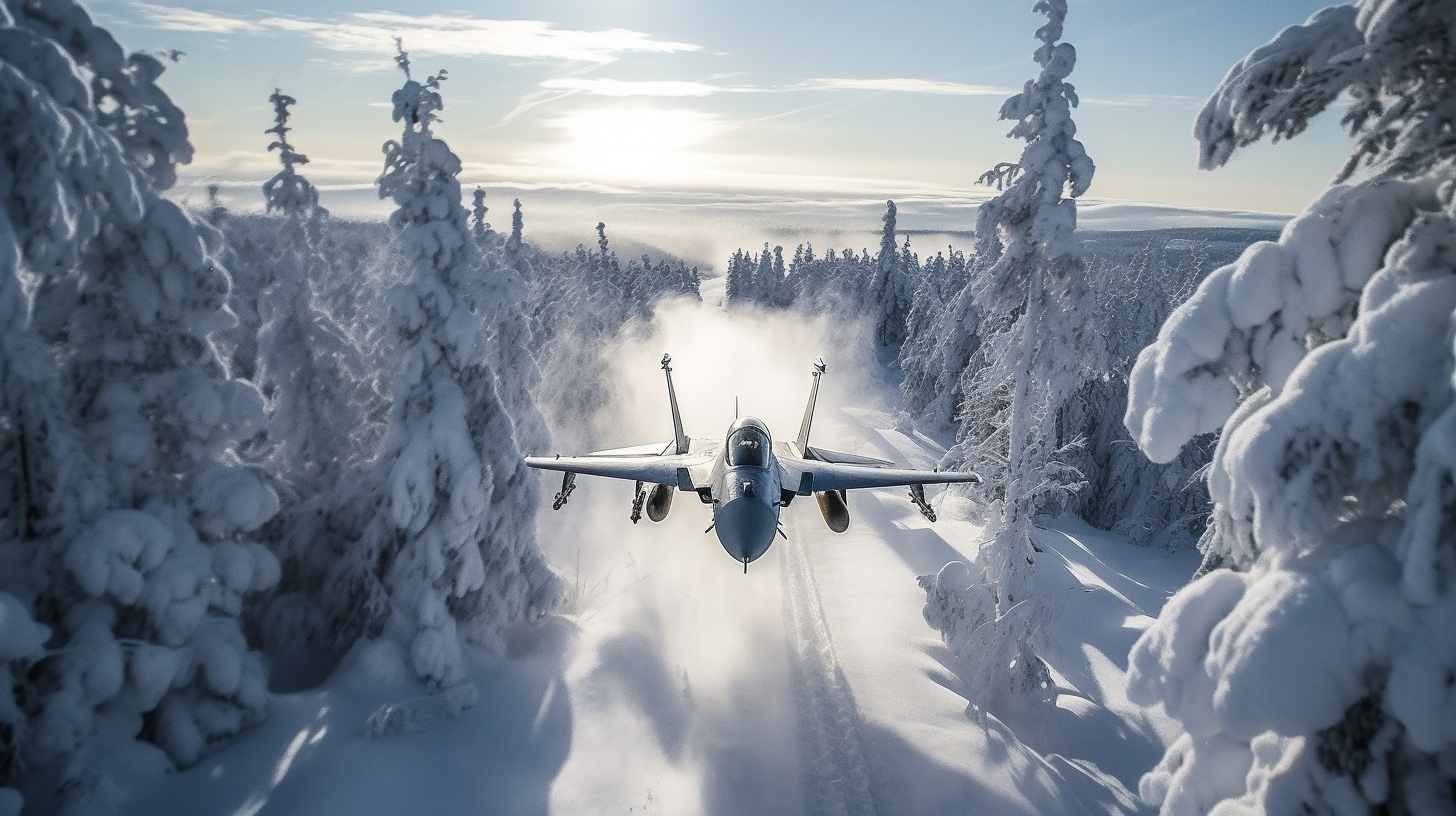Finland's NATO Leap: Reshaping Europe's Security Landscape
Finland's NATO entry bolsters the alliance, affects the Ukraine conflict, and challenges Russia's strategic position. Explore its impact on European security, Putin's leadership, and regional dynamics.

I asked GPT-4 to to look at the NATO expansion from three angles (captured in the sections below). This post is the unedited response and was captured in a single-turn (one prompt). The post's title and excerpt were created though singular prompts for each.
I created the cover photo for this post with Midjourney.
Finland's decision to join the North Atlantic Treaty Organization (NATO) is a significant move with far-reaching implications. As a historically neutral nation, Finland's entry into the military alliance is likely to impact both NATO's capabilities and the ongoing conflict in Ukraine, as well as Russia's strategic interests in the region. This analysis will explore the contributions Finland brings to NATO, the near-term impact on the war in Ukraine, and the impact on Russia and Vladimir Putin's leadership role.
What Finland Brings to the NATO Alliance
Finland's entry into NATO provides several advantages to the alliance:
- Strategic location: Finland shares an extensive 1,340 km (833 miles) border with Russia, which makes it a key strategic asset for NATO. This enhances the alliance's ability to monitor and respond to potential threats from Russia.
- Defense capabilities: Finland possesses a highly trained and technologically advanced military force. Its contributions will enhance NATO's overall capabilities in areas such as intelligence gathering, cybersecurity, and Arctic warfare.
- Economic strength: Finland's strong economy and industrial base can contribute to NATO's financial and logistical resources. Its capabilities in areas like telecommunications, electronics, and aerospace could be valuable for the alliance's technological edge.
- Diplomatic ties: Finland has maintained good relations with both Western and Eastern countries, making it a potential mediator for future conflicts. Its history of neutrality could also help ease tensions between NATO and Russia.
The Near-Term Impact on the War in Ukraine
Finland's entry into NATO is likely to have several short-term implications for the ongoing conflict in Ukraine:
- Increased deterrence: Finland's military capabilities and strategic location will bolster NATO's deterrence against potential Russian aggression in the region, which could encourage Russia to reconsider further escalations in Ukraine.
- Enhanced support for Ukraine: Finland's membership in NATO may lead to increased support for Ukraine, both in terms of military aid and diplomatic pressure on Russia to end hostilities.
- Wider European security: Finland's NATO membership could strengthen the alliance's presence in the Baltic Sea region, providing additional security to NATO members and partners in the area.
The Impact on Russia and Vladimir Putin's Leadership Role
Finland's entry into NATO is likely to have significant consequences for Russia and Putin's leadership:
- Weakening Russia's strategic position: Finland's NATO membership undermines Russia's strategic influence in the Baltic Sea region and on its northwestern border, potentially increasing the perceived threat from the alliance.
- Impact on domestic politics: Putin's strong stance against NATO expansion has been a cornerstone of his domestic political narrative. Finland's entry into NATO could weaken his leadership position by highlighting the failure to prevent this expansion.
- Strained Russia-Finland relations: Finland's NATO membership may strain relations between Russia and Finland, potentially leading to increased tensions, diplomatic conflicts, and even economic consequences.
In conclusion, Finland's entry into NATO brings significant advantages to the alliance, including enhanced military capabilities and a strategic location. The move is also likely to impact the ongoing conflict in Ukraine by increasing deterrence against Russian aggression and providing additional support to Ukraine. However, this development could also strain relations between Russia and Finland, potentially affecting Putin's leadership role and Russia's strategic position in the region.
Blogs of War generated this text in part with GPT-4, OpenAI’s large-scale language-generation model. Upon generating draft language, the author reviewed, edited, and revised the language to their own liking and takes ultimate responsibility for the content of this publication.
